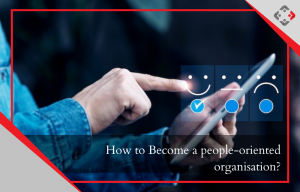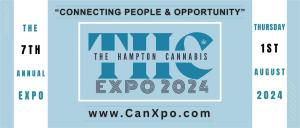Employees want to work for organisations where they are valued, respected, empowered, heard, and rewarded.
— Nikhil Agarwal
PUNE, MAHARASHTRA, INDIA, April 16, 2024 /EINPresswire.com/ — People do not seek to invest the valuable time of their lives and careers with organisations that see them as mere cogs in the machine. Great organisations make room for the overall well-being of their employees and maintain an engaging and collaborative work environment with a shared sense of mission and meaning in work. In this communiqué, business consultants of YRC show how to become a people-oriented organisation and how the mentioned 10 moves help in this direction.
Get advise for Retail Business Consulting : https://www.yourretailcoach.in/contact/
𝐅𝐥𝐞𝐱𝐢𝐛𝐥𝐞 𝐖𝐨𝐫𝐤𝐢𝐧𝐠 𝐌𝐨𝐝𝐞𝐬
Flexible working modes like remote working, WFH or hybrid modes offer a host of benefits to both employees and employers. It allows employees to strike a balance between their work and personal life. Flexi-working options are less stressful and also alleviate the workload burden by allowing employees to spread the quantum of their work over time and place. Such flexibilities prove to be more productive and lead to focus better contributing to better performances.
𝐓𝐫𝐚𝐢𝐧𝐢𝐧𝐠 𝐟𝐨𝐫 𝐭𝐡𝐞 𝐅𝐮𝐭𝐮𝐫𝐞
Most organisations focus their training and development programs to fulfil the current or immediate skill and knowledge requirements. Sustainable organisations keep an eye on future requirements as well. Such training and development requirements encompass building leadership qualities, providing higher education, and upgrading technical expertise in relevant fields. With upgraded levels of knowledge and skills, people gain authority over their roles and responsibilities. They become eligible to assume higher positions within a short time.
𝐍𝐨𝐧-𝐃𝐢𝐫𝐞𝐜𝐭-𝐍𝐨𝐧-𝐅𝐢𝐧𝐚𝐧𝐜𝐢𝐚𝐥 𝐁𝐞𝐧𝐞𝐟𝐢𝐭𝐬
Except maybe for a handful, most individual adults start planning late for their future. The future is not just about financial security but also other important aspects of life like health, marriage, family, education, retirement, and so on. Employee-first organisations underscore the future of their employees by emphasising non-direct-non-financial benefits. These benefits include providing health insurance coverage, financial education, expert consultancy on retirement planning, access to healthcare benefits, gym/sports facilities, etc.
𝐂𝐨𝐦𝐩𝐞𝐭𝐢𝐭𝐢𝐯𝐞 𝐏𝐚𝐲
While non-financial benefits serve a different purpose, direct financial compensation affects the ability of employees to fulfil their big and small on-the-go needs and sometimes, desires of life. Employee-first organisations see their employees as long-term partners of growth. To be able to fulfil these demands of life provides a psychological win and morale boost that directly connects to pay from work.
𝐒𝐮𝐜𝐜𝐞𝐬𝐬𝐢𝐨𝐧 𝐏𝐥𝐚𝐧𝐧𝐢𝐧𝐠
Succession planning lines up with the idea of having a long-term association with employees. Employees need not go job hopping for higher pay or career progression. They get access to the same or similar opportunities while staying in the same organisation. This helps employees save time and effort in moving up in their careers. Such internally achieved growth in career contributes to the fulfilment of self-esteem and self-actualisation needs of individuals.
𝐎𝐩𝐞𝐧 𝐂𝐨𝐦𝐦𝐮𝐧𝐢𝐜𝐚𝐭𝐢𝐨𝐧
Having a culture of fair, professional, open, and transparent communication helps in numerous ways. For starters, it helps accelerate the bonding among employees improving the richness of a work culture. Open communications permit off-the-board discussions and exchange of ideas that contribute to learning and widening the horizon of one’s knowledge and expertise. Healthy communication makes people-oriented leadership possible which is crucial for healthy senior-subordinate relationships. Employees can seek help more comfortably, raise their doubts and concerns without hesitation, or speak up on any relevant matter while being heard. A good communication culture brings more certainty with lesser stress and anxiety about routine work, job security, performance evaluation, etc. Communication is also a vital instrument in change management.
𝐃𝐞𝐜𝐞𝐧𝐭𝐫𝐚𝐥𝐢𝐬𝐚𝐭𝐢𝐨𝐧
Highly centralised systems limit the scope of innovation and experimentation and such stifling of innovation does not gel with the idea of people-orientation. Lack of ownership and accountability is also common in highly centralised organisations. People find it hard to associate with their work in organisations where they are merely following rules and decisions coming from higher authorities. Change management is also hard in centralised systems.
𝐙𝐞𝐫𝐨 𝐓𝐨𝐥𝐞𝐫𝐚𝐧𝐜𝐞 𝐟𝐨𝐫 𝐃𝐢𝐬𝐜𝐫𝐢𝐦𝐢𝐧𝐚𝐭𝐢𝐨𝐧
Workplace discrimination is in perihelion to the idea of people-orientation. Discrimination at workplaces manifests in different forms and degrees. The most common form of discrimination is one based on protected characteristics like gender, race, age, faith, geography, etc. Discrimination emanating impropriety brings a terrible name and the ripples of such incidents often reach the world of social media. Disability discrimination takes place in the event of failing or omitting to make reasonable policies, provisions, and systems for employees with disabilities. Sometimes organisations also find themselves facing the charges of retaliation discrimination.
𝐂𝐨𝐥𝐥𝐚𝐛𝐨𝐫𝐚𝐭𝐢𝐨𝐧
Employees coming from different backgrounds and expertise as a team help bring diversified perspectives and ideas. Working as a team also helps evenly and justifiably distribute the workload. It brings equity in responsibilities and reduces stress, burnout, and anxiety. There is a better focus on the respective specialities of each employee which in turn, helps create better performances and results. A collaborative work environment is also conducive to change management. Teamwork helps improve communication skills which in itself is a big boost for one’s personality development.
𝐅𝐚𝐢𝐫 𝐚𝐧𝐝 𝐓𝐫𝐚𝐧𝐬𝐩𝐚𝐫𝐞𝐧𝐭 𝐏𝐌𝐒
Employees can engage in their roles and responsibilities in more productive and meaningful ways with a greater sense of responsibility and accountability when the performance and results expected of them are clear and transparent. It helps them focus on what really matters and align their efforts with organisational expectations.
Get advise for Retail Business Consulting : https://www.yourretailcoach.in/contact/
𝐀𝐛𝐨𝐮𝐭 𝐘𝐑𝐂:
YRC is a Management Consulting Company, especially for the B-C Sector.
Our expertise lies into designing of Standard Operating Procedures (SOPs), Franchise Development, Strategy & Operations services, Process Audits & Training.
We help companies to organise their operations and expand through best management practices.
Dr Rupal K Shah
Mind-A-Mend Consultancy Private Limited
+91 98604 26700
[email protected]
Visit us on social media:
Facebook
Twitter
LinkedIn
YouTube
Key Performance Indicators for Ecommerce Warehouse | E-commerce Warehouse KPIs
![]()
Article originally published on www.einpresswire.com as Becoming a people-oriented organisation: A Quick Insight




